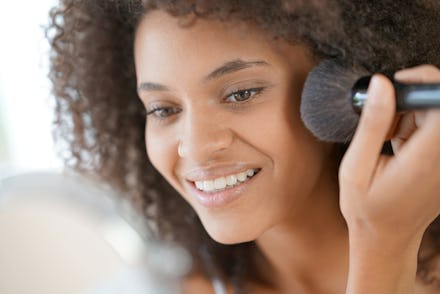New study finds black beauty products are more likely to have harmful chemicals

A new study published by the nonprofit Environmental Working Group has found that beauty products marketed toward people of color are more likely to contain harmful chemicals.
During the course of the study, the EWG analyzed the ingredients in 1,177 beauty and personal care products — from shampoo to soap to makeup to perfume and so on — and found that about 1 in 12 items marketed toward black women ranked as "highly hazardous" on the EWG's own scoring system, Skin Deep.
While 40% of the products marketed to all people were deemed "low hazardous," less than one-fourth of products marketed toward black woman were deemed the same.
"The percentage of products scored as 'high hazard' was about the same for both market segments, but the disparity in products scored as 'low hazard' suggests that there may be a narrower range of choices for safer-scoring products specifically marketed to black women," according to the study.
And the fact that black people's spending accounts for 22% of the overall market for personal care products, despite making up only 13% of the U.S. population, means that more black women are at risk, since they apparently buy a large portion of the market's products.
"The top line for us, which is an unfortunate top line, is we realized black women have fewer healthy options when it comes to products marketed to them," Nneka Leiba, the EWG's deputy director of research and one of the and co-authors of the study, said to BuzzFeed. "That black women buy and use more of these products could mean they are potentially exposed to more hazardous chemicals."
Among the most harmful products for black women, according to the EWG, are hair relaxers, hair coloring products and bleaching products. And as far as the hazards women face after using these products, there's risk of cancer, hormone disruption, allergies and more. About 280 of the products the EWG studied contained hormone-disrupting chemicals.
"If you're a black woman shopping for these products and you don't have any low hazard options, where do you go to?" Leiba told BuzzFeed.
You can see the entirety of the EWG's analysis here, and all the products it reviewed for the study.